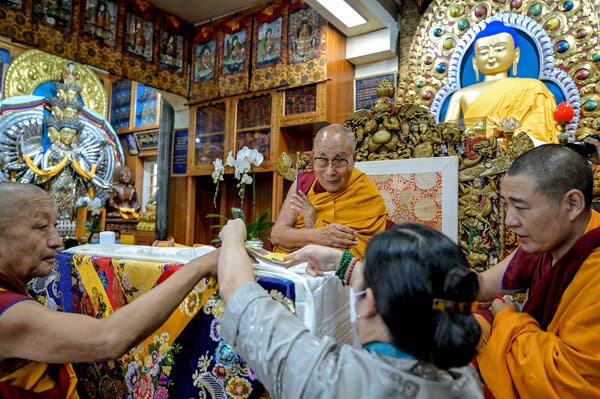The spiritual leader of Tibetan Buddhists, the 14th Dalai Lama, Tenzin Gyatso, has announced that a successor will be appointed after his death.
“Although this issue has not been publicly discussed, over the past 14 years, representatives of various spiritual traditions have repeatedly asked me to continue the institution of the Dalai Lama. In response to these requests, I confirm that this institution will continue to exist,” he said in an official statement on his website.
He recalled that the procedure for recognising the next Dalai Lama had already been set out in detail in a statement dated September 24, 2011. According to this statement, the right to choose the new spiritual leader belongs exclusively to the Gaden Phodrang Foundation, the official office of His Holiness. The decision will be made with the participation of representatives of Buddhist organisations and in accordance with the traditional process of searching for and recognising reincarnation.
“I confirm that the exclusive right to recognise the future Dalai Lama belongs solely to the Gaden Phodrang Trust. No one else has the right to interfere in this process,” he emphasised.
During Buddhist teachings in September 2023, the 14th Dalai Lama said he hoped to live to the age of 110. He noted that he maintains clarity of mind through mind development practices rather than medication. Instead, he prefers breathing exercises and physical training.
Traditions of electing Dalai Lama
According to tradition, the Dalai Lama is considered the embodiment of the bodhisattva of compassion, Avalokiteshvara. In July, the 14th Dalai Lama will turn 90, and the question of his successor is becoming increasingly relevant. There is no standard procedure for selecting a new Dalai Lama, and the process can be lengthy and difficult. The search for a reincarnation usually takes place in Tibet: once it is confirmed that a child is indeed the new incarnation, he undergoes special training.
Meanwhile, the Chinese authorities consider the current Dalai Lama a separatist and claim that control over the process of recognising his successor should be exercised by the Chinese government. A decree to this effect was adopted in 2007. However, the Dalai Lama himself has repeatedly stated that his next reincarnation may appear outside China.
